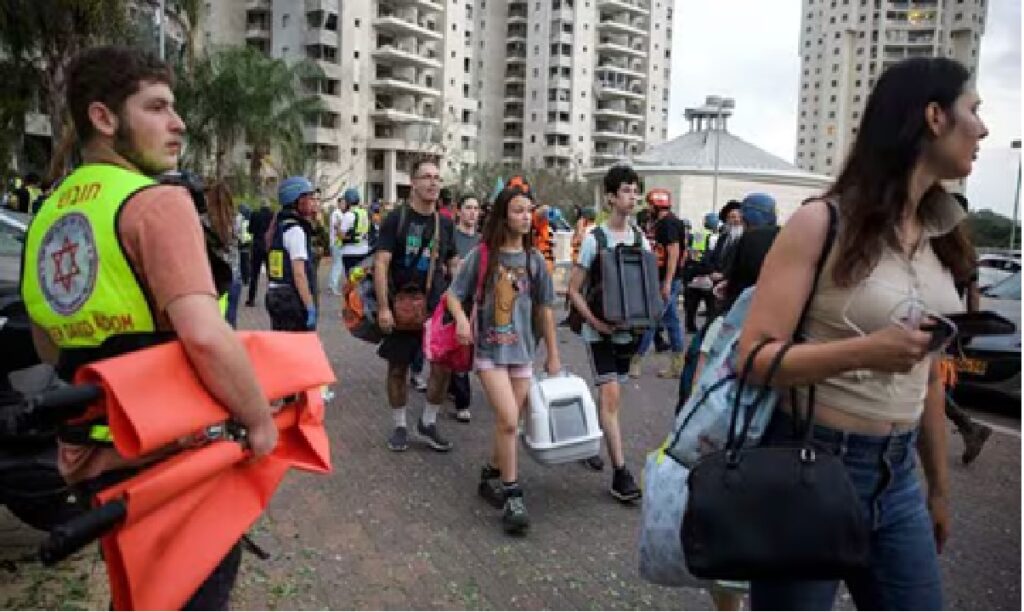Author: Akshay Published Date: June 16, 2025
As tensions escalate between Iran and Israel, India has acted swiftly and decisively to ensure the safety of its students abroad. Over 1,500 Indian students—many from Jammu & Kashmir—are currently pursuing medical and higher education in major Iranian cities such as Tehran, Qom, and Shiraz. With the growing instability, their safety has become a top concern for families and the Ministry of External Affairs (MEA).
MEA’s Proactive Measures
In official statements, the MEA confirmed that Indian missions in Tehran and Tel Aviv are “closely monitoring the security situation” and maintaining regular contact with Indian nationals in the region.
The Indian Embassy in Tehran has begun relocating students to safer accommodations, such as campus hostels or homes in lower-risk areas, away from potential conflict zones.
Families Express Deep Concern
Back home, particularly in Kashmir, families have been anxiously appealing to the Indian government for evacuation support. Many have received emotional, late-night messages from their children expressing fear and uncertainty.
Kashmiri parents have issued urgent public appeals to Prime Minister Narendra Modi and External Affairs Minister Dr. S. Jaishankar, citing multiple distress calls from their children. The Chief Minister of Jammu & Kashmir has also echoed these concerns and formally requested prompt government action.
Evacuation Plans in Progress
India’s efforts go beyond just relocation. Though Iranian airports remain closed, land routes are currently open. Iranian authorities have reportedly assured India that all land borders are accessible for coordinated evacuations, contingent on verified travel documentation.
To facilitate support, the MEA has launched helplines, a Telegram channel, and a Google Form to track and assist Indian students in real-time. This layered approach ensures a strategic response, starting with relocation, followed by on-ground support, and eventual evacuation if needed.
Why These Students Are Especially Vulnerable
Most of the affected Indian students are enrolled in MBBS and medical-related courses at prestigious Iranian universities. Their dense hostel accommodations and mandatory clinical rotations increase their risk exposure, particularly in the event of military activity.
Parents’ concerns go beyond academic disruption. Each passing day brings heightened worry about their children’s safety amid Iran’s Operation Rising Lion and ongoing retaliatory strikes.
Coordinated Diplomatic Action
India’s crisis management plan reflects a comprehensive, multi-pronged approach:
- Embassy action: Students are being moved to safer housing.
- Community engagement: Indian community leaders in Iran are conducting welfare checks.
- Communication tools, including helplines, Telegram channels, and registration forms, keep students informed and accounted for.
- Evacuation readiness: Plans are underway for land-route evacuations in cooperation with Iranian authorities.
These efforts highlight India’s commitment to proactive and compassionate diplomacy.
Iran’s Response
Iranian officials have responded constructively, opening land borders and cooperating with Indian diplomats to finalize evacuation lists and timelines. Both nations appear to recognize the humanitarian urgency amid the worsening military situation.
What Indian Students in Iran Should Do
If you’re currently in Iran, here are key steps to ensure your safety:
- Stay alert – Avoid unnecessary travel and follow local advisories.
- Stay connected – Keep your phone charged and respond to embassy updates promptly.
- Register officially – Fill out the MEA’s forms and follow updates on Telegram.
- Be ready to move – Keep essential documents and a packed bag ready.
- Stick with trusted groups – Stay in touch with peers, family, and local Indian community leaders.
Remaining calm and organized can make a major difference during emergency operations.
Emotional Support at Home
Families across India—especially in Kashmir—are holding vigil, forming support groups, and seeking updates from the government. Some communities have even initiated counselling programs to help families and students cope with anxiety and uncertainty.
Many students, meanwhile, are leaning on peer groups and embassy advisories for both practical support and emotional strength.
A Broader Lesson for Global Crises
India’s rapid and humane response could serve as a global model for managing crises abroad. Key takeaways include:
- Swift embassy engagement saves lives.
- Community outreach strengthens trust and morale.
- Multiple evacuation pathways increase operational flexibility.
- Centralized tracking systems (helplines, forms) streamline efforts.
This represents modern diplomacy at its best—responsive, empathetic, and well-organized.
This is more than just a geopolitical development—it’s a human story of safety, reassurance, and unity. Amid global conflict, India’s unwavering priority remains the protection of its citizens—wherever they may be.
To the students in Iran: we wish you safety and strength. Your courage in these times reminds us all of the power of resilience, solidarity, and hope.
